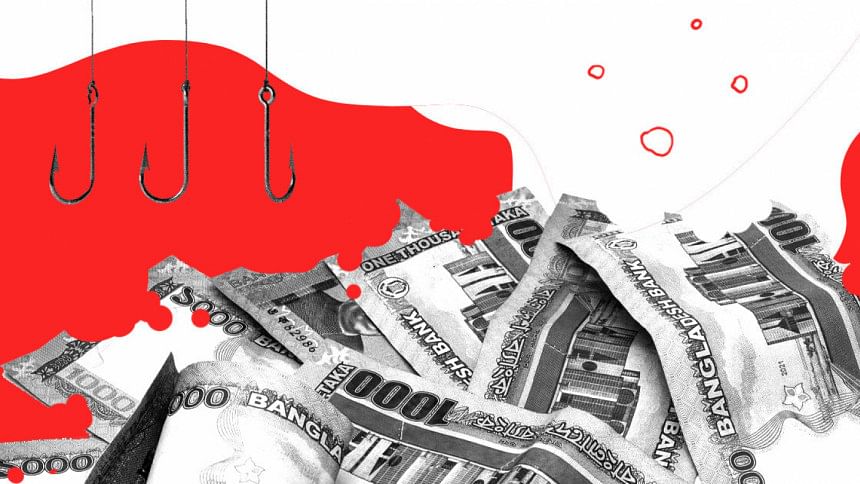Govt’s overreliance on banking sector will create disorder in financial sector

The government's overdependence on the banking sector to finance its budget deficit will affect the financial sector as well as hurt private sector investment and employment generation, according to experts.
"Again, like every year, the government's overdependence on the banking sector to finance the budget deficit will create chaos in the financial sector," said M Abu Yusuf, director of the Centre on Budget and Policy at the University of Dhaka.
The centre organised the event on the campus premises.
While presenting a keynote paper, titled "Review of Proposed Budget 2024-25: Macroeconomic Reintegration, Education and Employment", he said the deficit in this year's budget stood at Tk 256,000 crore, which is 4.6 percent of the GDP.
To finance the budget deficit, the government has set a domestic loan target of Tk 160,900 crore, of which Tk 127,200 crore will come from the banking sector, he said.
However, if the budget deficit is financed by money collected from savings certificates or pension schemes, it will provide financial security to the middle class and provide safe credit facilities for the government, Yusuf added.
Although inflation is above 9 percent, food inflation is about 15 percent to 18 percent, he said.
"Reducing the double-digit inflation rate will be the biggest challenge for the government. It is having a direct impact on people's lives and causing social and political instability."
Yusuf added that some more measures could have been taken to tackle inflation.
The social and financial impact of inflation could have been controlled by reducing the size of the budget and lowering the value-added tax (VAT) and import duties on various commodities as an emergency measure, he said.
Moreover, the income tax ceiling could have been increased to give some relief to people from lower and middle-income backgrounds.
He added that 14 percent of the budget would be spent on interest payments, almost equal to the total allocations for the education and health sectors.
"This is a matter of concern for us as our reserves have dwindled a lot," he observed.
Former planning minister MA Mannan, Dhaka University Vice-Chancellor Prof ASM Maksud Kamal, and Research and Policy Integration for Development Chairman MA Razzaque were among others who spoke at the event.

 For all latest news, follow The Daily Star's Google News channel.
For all latest news, follow The Daily Star's Google News channel. 







Comments